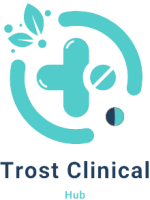Finding the right clinical trial can be a crucial step in accessing innovative treatments and contributing to important medical research. Here’s a guide to help you navigate the process and identify a trial that aligns with your health needs and goals.
1. Identify Your Health Condition and Goals
Start by clearly defining your health condition and what you hope to achieve through participation in a clinical trial. Whether you’re looking for new treatment options for a chronic condition or seeking cutting-edge therapies for a specific illness, understanding your health needs will help you focus on trials that are relevant to your situation. Make a list of your medical history, current medications, and any specific concerns you have, as this information will be important when evaluating potential trials.
2. Research Available Clinical Trials
Utilize online resources and databases to search for clinical trials that match your health condition. Websites like Trost Clinical Hub offer comprehensive listings of ongoing and upcoming trials, with detailed descriptions of the research focus, eligibility criteria, and locations. Use search filters to narrow down trials based on factors such as your condition, geographic location, and trial phase. Pay attention to the trial’s objectives and methods to ensure they align with your health goals.
3. Evaluate Eligibility Criteria
Each clinical trial has specific eligibility criteria that participants must meet. Review these criteria carefully to determine if you qualify for the trial. Eligibility requirements may include factors such as age, health status, and previous treatments. If you’re unsure whether you meet the criteria, don’t hesitate to reach out to the trial coordinators or research team for clarification. They can provide additional information and help you understand if the trial is a good fit for you.
4. Consider the Trial’s Location and Commitment
Consider the location of the clinical trial and the time commitment required. Some trials may be conducted at local hospitals or research centers, while others may require travel or multiple visits. Assess how the trial’s location and schedule fit into your daily life and personal commitments. Additionally, think about the potential impact on your routine and the level of involvement needed, such as frequency of visits, duration of the trial, and any additional procedures.
5. Discuss with Your Healthcare Provider
Consult with your healthcare provider to discuss your interest in participating in a clinical trial. They can offer valuable insights into whether a specific trial is appropriate for your condition and help you understand the potential benefits and risks. Your healthcare provider can also assist with evaluating the trial’s protocol and ensure that it aligns with your overall treatment plan.
6. Review Informed Consent Documents
Before enrolling in a clinical trial, you’ll be asked to review and sign informed consent documents. These documents provide detailed information about the trial’s purpose, procedures, risks, and benefits. Take the time to read and understand these documents thoroughly, and ask any questions you may have. Informed consent is a critical part of the process, ensuring that you are fully aware of what participation involves.
Finding the right clinical trial involves careful research and consideration. At Trost Clinical Hub, we are dedicated to helping you navigate this process and connect with trials that align with your health needs. By following these steps and utilizing available resources, you can make informed decisions and participate in research that could make a significant difference in your health and well-being.

